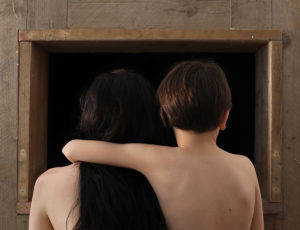Good Letters
What does it mean to be labeled a “religious poet” in the twenty-first century? The term’s undoubtedly fraught, but “fraught” is perhaps the best word to describe the current relationship between religion and pretty much everything. Small wonder, though, if one accepts the argument of scholars such as Wilfred Cantwell Smith, Talal Asad, and Brent…
We’re all familiar with how traditional Western art forms were blown to bits in the early to mid-twentieth century. And we know the locus classicus for this in literature: T.S. Eliot’s The Waste Land, written in the wake of the First World War’s perceived destruction of civilization. Recall The Waste Land‘s characteristic phrases:…
“For me the only way I can have a relationship with divinity is through the unknown, through mystery. If your idea of divinity is leaning into the mystery, you’re more likely to find grace in a variety of places. In my fiction I have tried to make traditionally ugly places beautiful and filled with grace—garbage dumps, malls. I’ve always had that impulse to try to see things not the way the world sees them, but to see the spark of movement and divinity in what is considered to be darkness, ugliness. That makes the most spiritual sense to me.”
Ted Gioia is an accomplished music historian whose crisp writing and expansive studies have made his eleven books essentials. His new book, Music: A Subversive History, is a worthy conclusion to a 25-year project, charged by his core belief that “music is a force of transformation and empowerment, a catalyst in human life.” That belief…
When my mother was still alive, one of the stories she used to tell was about the role of Catholics in the desegregation of my Mississippi Delta hometown during the 1960s. One white priest, a “Father Love,” she said, had come to town to be in residence at St. Francis, the “black Catholic church,” and…
O you who want to slaughter us, we’ll be dead soon enough what’s the rush / and this is our only world. / Now bring me a souvenir from the desecrated city, / something tender, something that might bloom. Poet Deborah Landau closes her collection Soft Targets with this devastating couplet, the cry of…
Ed Falco has been writing poetry, fiction, and plays for 30 years, but his story “Millat’s Orchids” in Image 102 is his first publication in Image. He took time out of his vacation on the East Coast to talk with Good Letters contributor Brad Fruhauff about his evolution as a person and as an author,…
The day before my uncle John’s funeral, I sleep most of the day after school drop off, the night before having been largely consumed by anxiety and grief, a mind untethered and roaming. I wake up to a voicemail from the vice principal of my son’s school, telling me that there has been an incident…
I have exchanged so much for the intensity of living in New York City: personal space, expendable income, welcome silence, a night sky full of stars. It is deliberate work to live here. The city constantly refashions itself, and so must its people. We develop methods and mechanisms for self-preservation. Some are brusque, others gracious.…
On August 3, I was on a bus between Guanajuato and Mexico City, traveling with my family, when a 21-year-old American man opened fire in a Wal-Mart in El Paso, Texas, killing twenty-two people and injuring twenty-four. According to the Associated Press, he had published a screed online that referred to a “Hispanic invasion of…
Good Letters
Regular Contributors
Richard Chess
Joanna Penn Cooper
Brad Fruhauff
Burke Gerstenschlager
Caroline Langston
Morgan Meis
Jeffrey Overstreet
Christiana Peterson
Peggy Rosenthal
Tania Runyan
Brian Volck
For the humanists of the Renaissance, literature mattered because it was concrete and experiential—it grounded ideas in people’s lives. Their name for this kind of writing was bonae litterae, a phrase we’ve borrowed as the title for our blog. Every week gifted writers offer personal essays that make fresh connections between the world of faith and the world of art. We also publish interviews with artists who inspire and challenge us.




